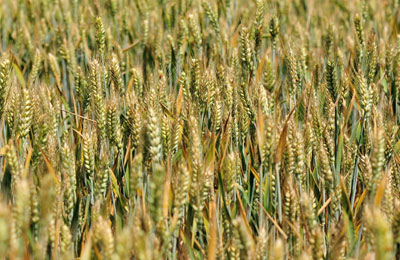
US GM wheat find threatens exports
Tokyo, May 30, 2013
By Risa Maeda and Charlie Dunmore
Unapproved genetically modified wheat found growing in the US is threatening the outlook for US exports of the world's biggest traded food commodity, with importers keenly aware of consumer sensitivity to gene-altered food.
Major importer Japan has cancelled a tender offer to buy US western white wheat, while other top Asian wheat importers South Korea, China and the Philippines said they were closely monitoring the situation.
"We will refrain from buying western white and feed wheat effective today," Toru Hisadome, a Japanese farm ministry official in charge of wheat trading, told Reuters.
The European Union is preparing to test incoming shipments, and will block any containing GM wheat. Chicago Board of Trade wheat futures fell 0.5 percent on Thursday.
GM wheat was discovered this spring on a farm in the west coast state of Oregon, in a field that grew winter wheat in 2012. USDA officials said on Wednesday that when a farmer sprayed the so-called "volunteer" plants with a glyphosate herbicide, some of them unexpectedly survived.
Scientists found the wheat was a strain field-tested from 1998 to 2005 and deemed safe before St. Louis-based biotech giant Monsanto withdrew it from the regulatory approval process on worldwide opposition to genetically engineered wheat.
No GM wheat varieties are approved for general planting in the US or elsewhere, the USDA said. The EU has asked Monsanto for a detection method to allow its controls to be carried out.
With high consumer wariness to genetically-modified food, few countries allow imports of such cereals for direct human consumption. However, the bulk of US corn and soybean crops are genetically modified.
RAPESEED, RICE
The latest finding revives memories of farmers unwittingly planting genetically modified rapeseed in Europe in 2000, while in 2006 a large part of the US long-grain rice crop was contaminated by an experimental strain from Bayer CropScience , prompting import bans in Europe and Japan.
The company agreed in court in 2011 to pay $750 million to growers as compensation.
Asia imports more than 40 million tonnes of wheat annually, almost a third of the global trade of 140-150 million tonnes. The bulk of the region's supplies come from the US, the world's biggest exporter, and Australia, the No. 2 supplier.
The USDA said there was no sign that genetically engineered wheat had entered the commercial market, but grain traders warned the discovery could hurt export prospects for US wheat.
"Asian consumers are jittery about genetically modified food," said Abah Ofon, an analyst at Standard Chartered Bank in Singapore. "This is adding to concerns that already exist on quality and availability of food wheat globally."
European traders said Black Sea and EU wheat was well positioned to benefit in any displaced demand for US grain. But some were more pragmatic on the overall impact.
"The market is going to need US wheat, we won't be able to do without it, so that could mean more checks and more sanitary certificates," one European dealer said.
"Japan is in a position to be selective and to react sharply. It has other suppliers and the financial means to be choosy and pay more if needed. This is not necessarily the case for (top global wheat importer) Egypt which is in a difficult financial situation." - Reuters







